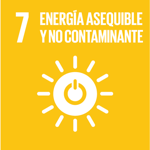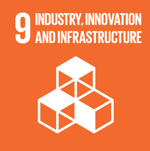Vertical Farming: Horticultural innovation for Latin America and the Caribbean
 Panama
Panama
 Argentina
Argentina
 Colombia
Colombia
 Costa Rica
Costa Rica
Executive Summary
The rapid growth of the global population, which could reach 10 billion by 2050, has increased the need to produce food efficiently and effectively. Furthermore, it is estimated that during the next 50 years the effects produced by climate change, added to the main challenges of humanity in conditions of uncertainty (unemployment, pandemics, wars, etc.), will play a fundamental role in the development of modern agriculture. In Latin America and the Caribbean (LAC), it is urgent to develop innovative alternatives that optimize the efficiency of agricultural production. Vertical Farming (VF) is emerging as a sustainable and effective alternative for intensive crop production in LAC, in addition to guaranteeing food security and satisfying the increasing needs of the world’s population. VF is an innovative technology for growing food in a sustainable and intensive way, making efficient use of water resources, reducing the distances between the production and supply areas, providing fresh and safe food products while using fewer pesticides and contributing to the food autonomy of the population. The general objective of this project is to comprehensively evaluate vertical farming systems as a sustainable alternative to intensive crop production which favors competitiveness, food security and its implementation in LAC. The specific objectives of the project are: i) To technically and agronomically validate VF technological alternatives in different environments, ii) To determine the economic and financial feasibility of VF systems, and iii) To manage knowledge about VF technologies and strengthen the capabilities in the region. The initiative seeks to increase food production by maximizing the available cultivation surface, to produce more plants in the same space. It is expected that this project will generate regional precedents for different VF system alternatives (controlled environment, protected and/or semi-protected environment) and contribute to the production of food while reducing the use of water resources and phytosanitary products, guaranteeing safer food in less time.
The technological solution
The general objective of the project is to comprehensively evaluate vertical farming systems as a sustainable alternative for the production of intensive crops, which favor competitiveness, food security and their implementation in LAC.
Results
It is expected that the validation of controlled, protected or semi-protected AV systems will be highly reproducible, with the linkage and potential adaptation of the system to the different species prioritized for cultivation in climatic conditions of the four countries in the region. Production is expected to increase by at least 25% compared to conventional production units.
Beneficiaries
The direct beneficiaries will be at least 2,000 intensive crop producers from the countries participating in the project, and the indirect beneficiaries are estimated to reach an additional 6,500. Moreover, the project will reach at least 80 researchers and technicians from public institutions, at least 75 students, 30 local marketers and other private sector actors in the project countries.
Sustainable Development Goals







Project news
Participating Organizations
Executor
- Instituto de Innovación Agropecuaria de Panamá (IDIAP) - Panamá
Co-executor
- Instituto Interamericano de Cooperación para la Agricultura (IICA) - Costa Rica
- Instituto Nacional de Tecnología Agropecuaria (INTA) - Argentina
- Instituto Nacional de Innovación y Transferencia en Tecnología Agropecuaria (INTA) - Costa Rica
- Corporación Colombiana de Investigación Agropecuaria (AGROSAVIA) - Colombia
Graphics and data
Financing by country (in USD)


































